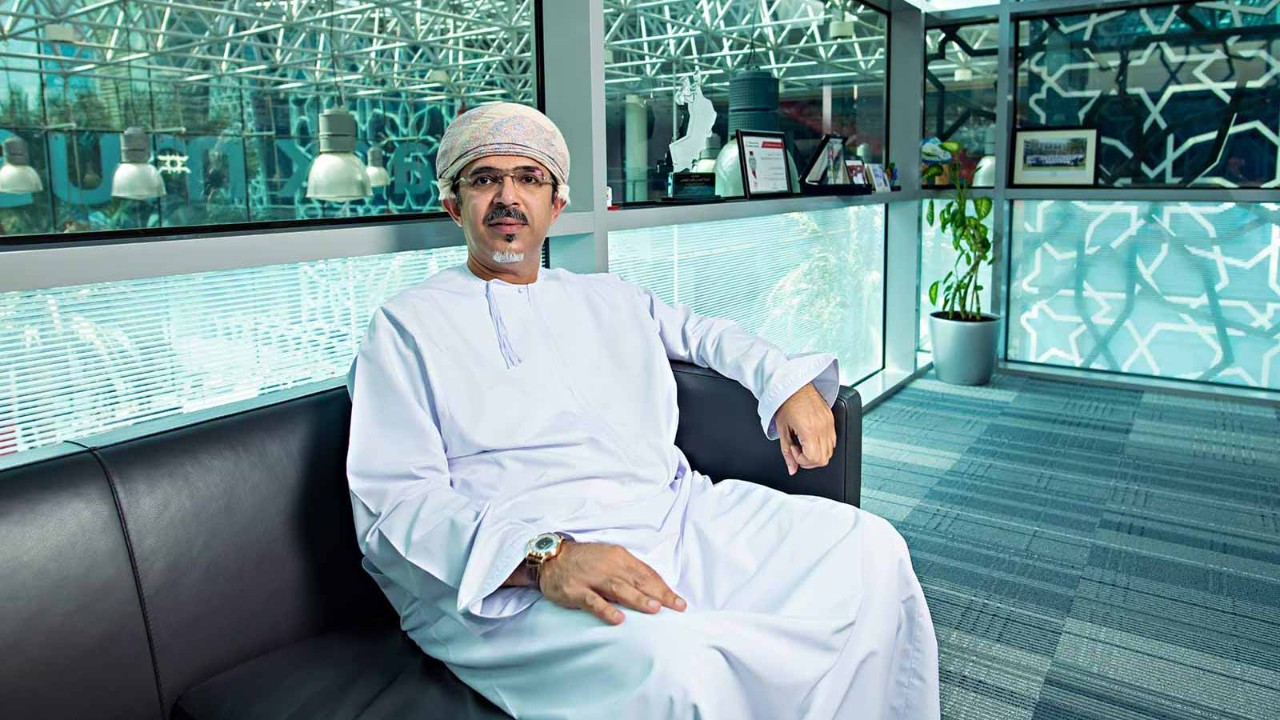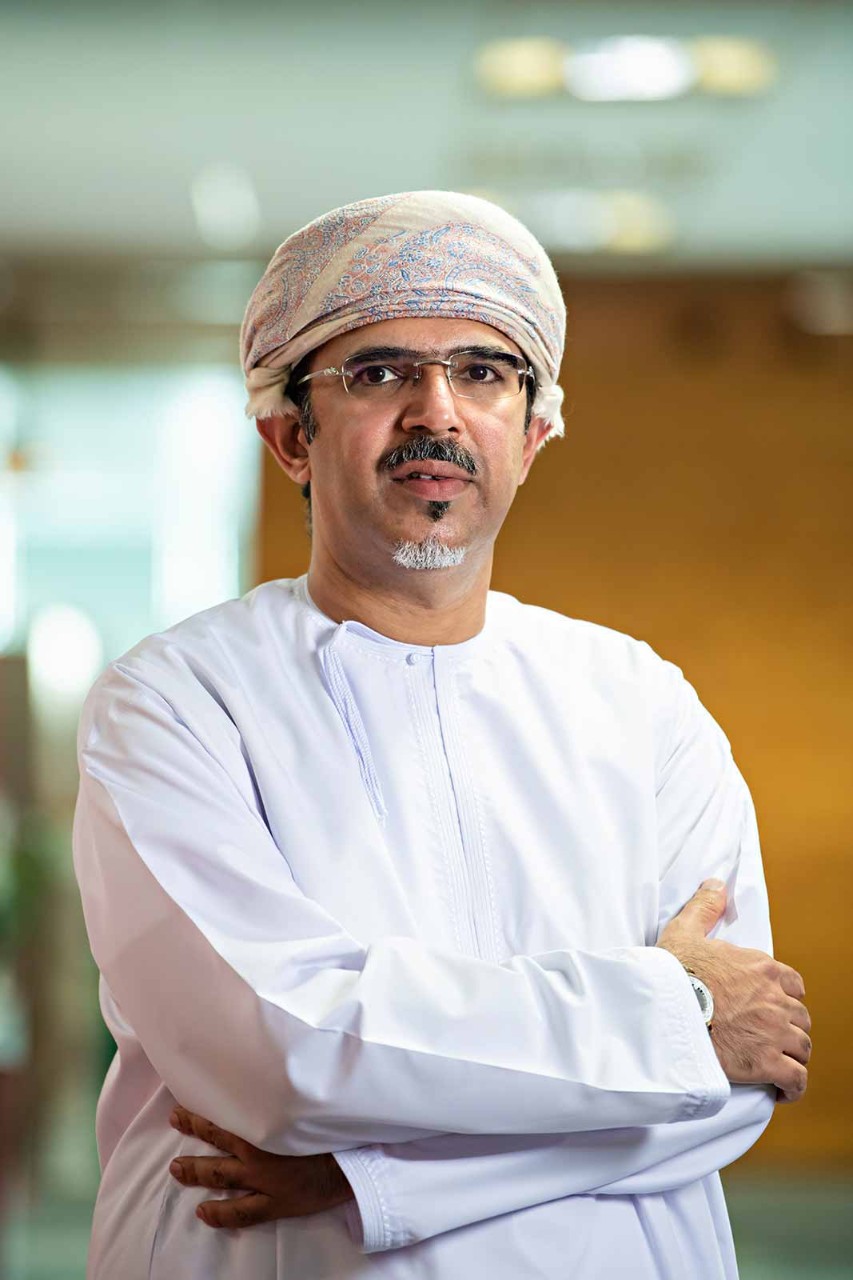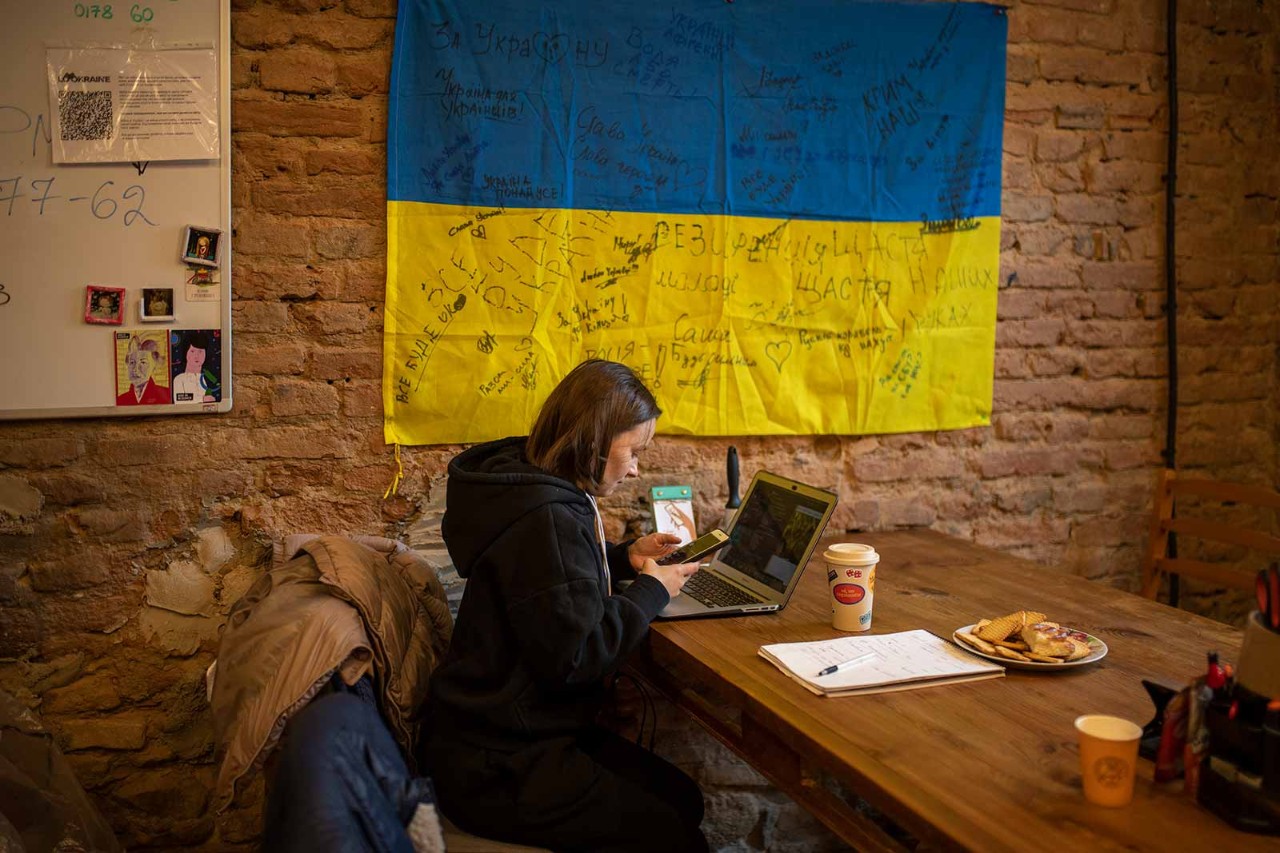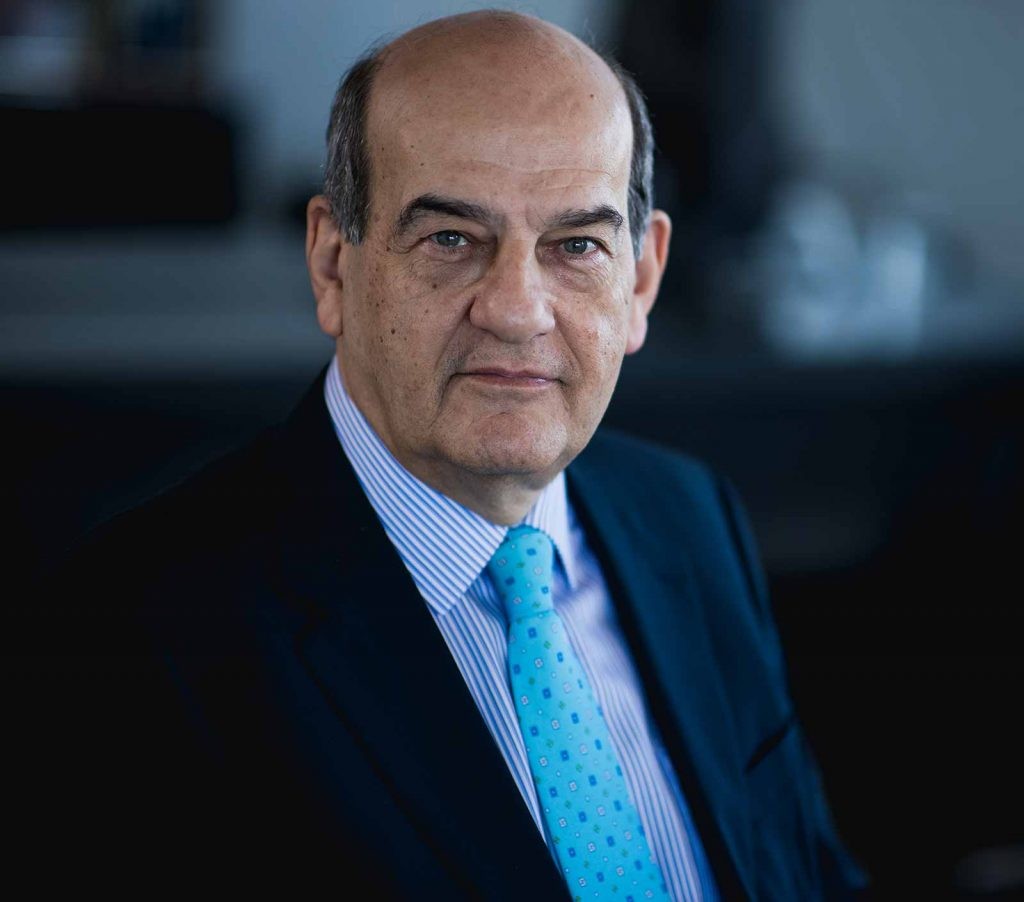
As chief banking officer for Bank Muscat, the largest retail and corporate bank in Oman, Ahmed Faqir Al Bulushi faces a number of challenges and opportunities. From helping clients adapt to the new realities of a post-pandemic business environment and the immediate impact of the war in Ukraine to rapid advances in fintech and the push to digital services, Al Bulushi has a very full agenda.
However, despite the current geopolitical uncertainties, he remains optimistic as Oman pushes forward with its economic reform programmes.
Positive markets
‘The markets are very positive,’ he says. ‘We are out from the pandemic, and out from pandemic-induced low oil prices. We have introduced VAT to take the economy to an international standard economy, and inflation is still relatively low at 2% to 3%.’
Appointed chief banking officer in January this year, Al Bulushi had held his previous position of chief corporate officer since 2019. His task in his new role is ‘to grow the bank’, he says.
It’s a vast job. All Bank Muscat’s business lines come under his umbrella – corporate banking from SMEs to major multinational companies, treasury and financial institutions, and personal banking. Along with the COO and CFO, Al Bulushi reports directly to the bank’s chief executive.
‘It is challenging because it is a new role,’ he admits. ‘Bringing structure to the role is a must.’ His team of nine attend regular weekly update meetings, along with monthly performance reviews of all areas of the bank. At these meetings he receives feedback from auditors, risk managers and other executives to identify emerging issues.
‘One of the positives to come out of the pandemic was that technology usage by our clients doubled’
Bank Muscat in numbers
1982
Year Bank Muscat was founded
170
Number of bank branches
50%
Percentage of Oman population that banks with Bank Muscat (2.4 million)
50,000
Number of corporate clients
US$493m
Pre-tax profit (2021)
US$33.9bn
Total assets (2021)
Power of delegation
He describes his leadership style as a ‘one-team’ approach: ‘I aim to empower the team through delegation,’ he says. As well as the weekly updates and monthly performance reviews, the whole team attends monthly sessions where they review strategy, discuss ideas and develop project plans, which in turn lead to implementation plans.
‘We are helping change by creating a performance and delivery culture, and I see my role as an agent for change,’ he says. ‘We aim to visualise the future while keeping our eyes on the ground.’
Al Bulushi, a career lifer at Bank Muscat, joined the bank in 1994 as an internal auditor.
Working in the evenings, he studied first for the Association of Accounting Technicians qualification. By 2000, however, he was studying for the ACCA Qualification, which saw him spend time in London.
‘I had been advised that I should be fully qualified by the time I was 30, so getting down to study for the ACCA Qualification was a must,’ he says.
Strategic operation
Duly armed with his ACCA membership, in 2006 he pursued a new opportunity in the bank’s operations in Saudi Arabia. There he became COO, looking after all the support functions of the bank, and then chief executive, managing the full ‘A to Z’ of the bank in the kingdom. During this time, he also completed an MBA, which in part led to his next move – a big shift in his career – when he was asked to lead the bank’s overall human resources function.
Back in Oman, and helped by what he had learnt from both his MBA and the ACCA Qualification, he transformed HR into a business partner within the organisation, making the function a more strategic operation.
2019 saw him return to corporate banking. During this time, the bank teamed up with international fintech companies to provide payment processing services to businesses in Oman, a move that will help boost e-commerce.
‘Our partnerships with fintechs are important; we want to leverage on their experience and utilise their knowhow’

Top tips
- ‘The younger generations are used to just touching a screen and getting instant results, and perhaps they want the same for their careers. My advice is: don’t be in a hurry.’
- ‘Do get a professional qualification in whatever area you want to work in, whether that is IT, investment or accountancy.’
- ‘Start studying for your qualification as soon as you can after graduating, certainly within three to five years. This will give you a strong foundation for your future.’
Digital pioneers
‘One of the positives to come out of the pandemic was that technology usage by our clients doubled,’ Al Bulushi says. ‘We have been pioneers in producing digital solutions for everyday banking, and this applies to our corporate clients as well. We want to make sure that our clients can access our banking services anytime, anywhere.
‘Our partnerships with fintechs are important; we want to leverage on their experience and utilise their knowhow,’ Al Bulushi adds, noting that the bank has created an investment fund specifically aimed at fintech investments.
Improving inclusivity
Currently, some 1.3 million customers use the bank’s omni-channel mobile and internet banking facilities. That is not to say that the bank will abandon its 170 branches; Bank Muscat believes its branch network is important in the country’s drive to boost financial inclusion. It has even introduced two bus-based mobile banking units that travel to remote locations. It is also training branch employees in sign language for greater inclusivity.
For its corporate clients, the bank recently launched its integrated transaction banking platform, which offers a suite of digital solutions that cover payments, account services, collections and receivables, liquidity and trade solutions.
Towards diversification
Such moves are in tune with Oman’s efforts to make its economy more diversified, as outlined in the government’s Vision 2040. The country remains heavily reliant on oil and gas revenue, even though in 2020 non-oil revenue accounted for 37% of national income. The pandemic presented a challenge to the local economy when the price dropped to US$40-US$50 a barrel, but positivity returned when the price rose again.
‘Oil and gas production needs constant investment to ensure sustainability of production, but production has been impacted because investment has been getting lower over the last few years,’ Al Bulushi says. ‘This is a reflection of the move towards renewable energy.
‘When the oil price dropped to the low of US$40 per barrel, it was much cheaper than any alternative, so investment in alternatives slowed down. But at US$80, the price is a good fit for consumers and producers.’
Ukraine effect
That was, of course, before the recent spike in oil and gas prices as a result of the war in Ukraine. ‘There is a short-term gain to our region now with increasing oil prices but, long term, inflation in Oman will increase because we import everything else,’ he says.
This shows how such a crisis can have far-reaching effects – on the one hand oil revenues have increased but, on the other, the cost of other commodities, such as wheat, continues to rise alongside shipping costs, leading to greater inflationary pressure.
‘There was more uncertainty during the pandemic. Now as a country we remain neutral, and we are praying that the conflict does not expand further,’ he says. ‘The government always keeps up to one year’s food in reserve to ensure sustainability and continuity. But inflation is set to rise while shipping and transportation costs will also increase.
‘However, the last two years have taught us how to work and collaborate to find solutions with greater flexibility and to take uncertainty into account. Nothing stays the same forever so we have to adapt.’
CV
2022
Chief banking officer, Bank Muscat, Oman
2019
Chief corporate banking officer, Bank Muscat, Oman
2016
HR deputy general manager, Bank Muscat, Oman
2006
Head of operations, rising to COO, then CEO, Bank Muscat, Saudi Arabia
1994
Internal auditor, then internal audit manager, Bank Muscat, Oman


